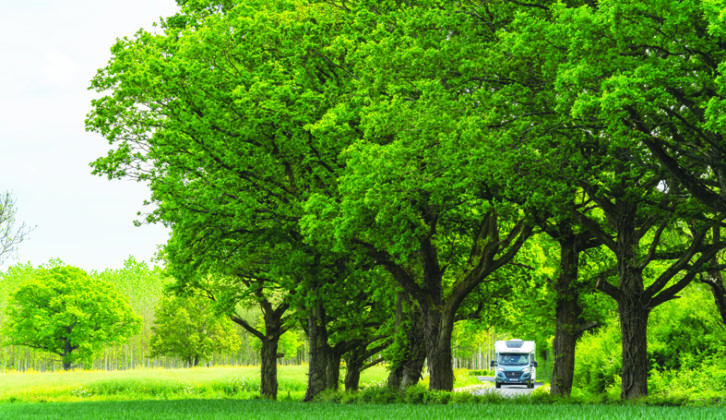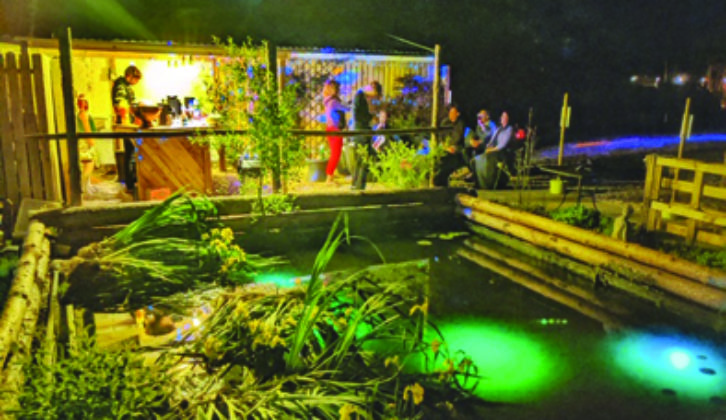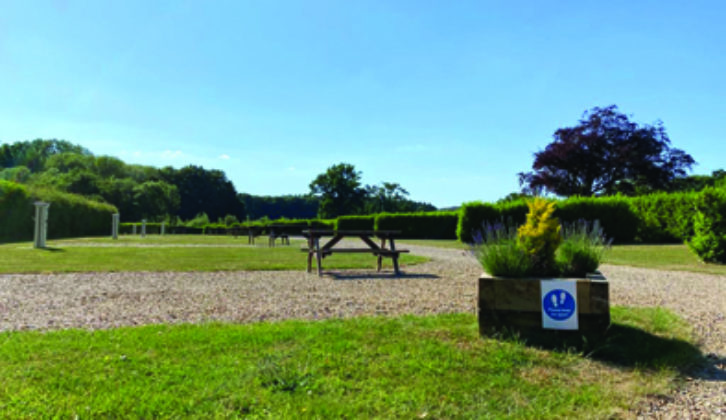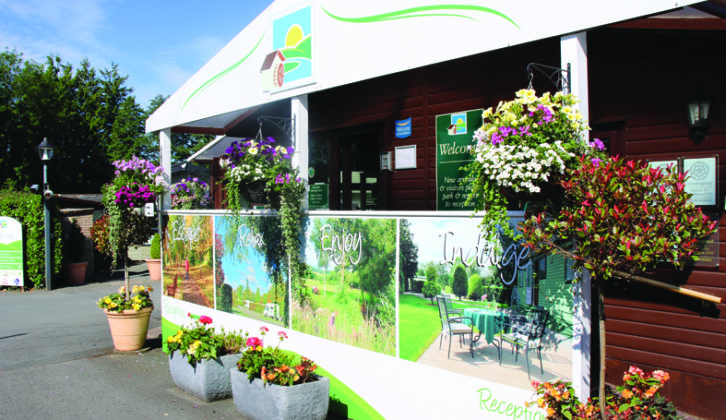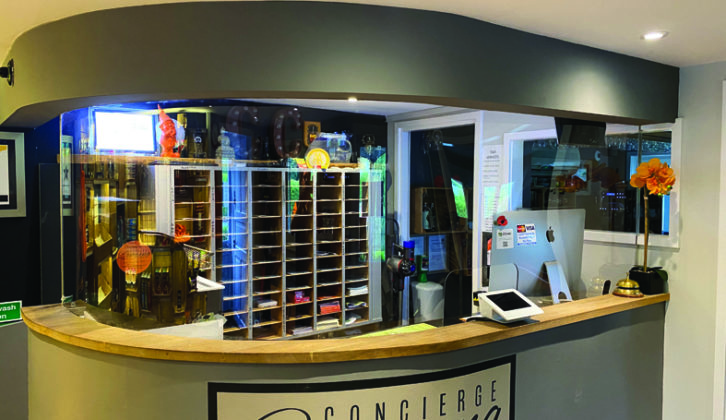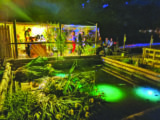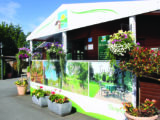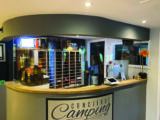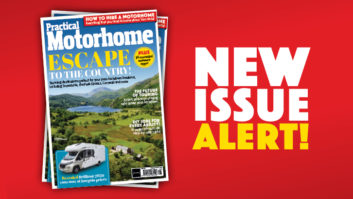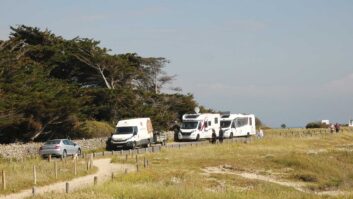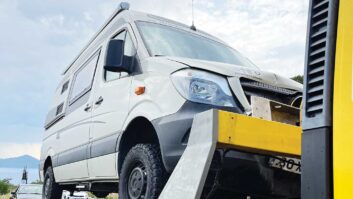Leisure vehicles all over the country have been basking in the summer sunshine and perhaps gathering a little dust on drives, in storage compounds and on sites, waiting for their owners to unlock their doors once more.
Now they might not have so very long to wait. If the country can meet the five tests laid down by the UK Government for the road to recovery from the Covid-19 pandemic, the hospitality industry can look with hope towards July as a possible date for resuming business – at least in England.
This will be good news for campsites, desperate to claw back revenue lost during the best spring we’ve had for years, and great news for all of us, desperate to see some different scenery.
People with their own motorhome are best placed to enjoy some form of holiday this year. With your own vehicle, you know exactly who has used it, so if all members of the family are infection-free, the risk of contracting the virus inside your ‘van is low.
It helps, too, that for health and safety reasons, the recommended minimum distance between pitches is six metres. Leisure vehicle owners are onto a further winner of minimising contact with infection if they have their own facilities.
Getting outdoors
At the time of writing, we have seen some easing of restrictions, with outdoor and water sports, open water swimming and other activities now permitted within your family unit and up to six people (adhering to social distancing) being able to get together, depending on which UK country you live in.
In England, driving in a private vehicle to a beach or green space is permitted if you are alone or within your family unit. That green space can be extended to gardens normally open to the public if ticketed or members-only.
The National Trust recently announced the opening of some of its gardens and parks, with advanced booking and time slots, as has Blenheim Palace. Chatsworth House has reopened its car parks, picnic shop and estate farm shop; booking for the car parks is also essential.
The National Gardens Scheme, where private gardens are open to the public, has taken a lead from The National Trust and is encouraging some of its larger gardens in England to open, with tickets bought online and time slots appointed.
Hospitality businesses have also been getting creative. The Luna Cinema, for example, normally has open-air venues, but is now hosting drive-ins, at such wonderful locations as Blenheim Palace and Warwick Castle.
Businesses everywhere are having to adapt to accommodate social distancing, to minimise the risk of spreading the virus. For campsites, that might mean keeping facilities closed, or adopting some measures used by supermarkets, such as Plexiglass screens in reception. Distance markers are being placed outside reception, shops and washblocks, and hand sanitiser stations provided outside washblocks and reception. Cleaning is being carried out more frequently throughout the day, and on-site cafés, restaurants and bars are operating takeaway services only.
There will also be restrictions on neighbourly gatherings, and sites might decide on having more distance between units, by taking in fewer guests over a set period.
There shouldn’t be very much competition for pitches from European visitors, because everyone entering the UK, by whatever means of transport after 8 June must self-isolate for 14 days and declare on a form where they will be staying.
You might wonder why this is only now being introduced, but according to Home Office Chief Scientific Adviser Professor John Aston, “The scientific advice so far has been clear: while there has been significant community transmission of the virus within the UK, the impact of putting in place additional border restrictions would have been negligible to the spread of the virus.” This is a very fluid situation, however, so the quarantine period might be different when you read this.
For the UK hospitality industry, 4 July is the absolute earliest opening date, and this may also be phased, depending on how different areas are being affected by the virus.
It will mean not only sites, but also cafés, restaurants and pubs, especially those with outside areas, might be able to open with social distancing measures in place.
But what do you do about public toilets? Some beach facilities have reopened since May, although long queues are inevitable.
For the latest information on lockdown measures and restrictions in each UK country, visit the dedicated government Coronavirus webpages for England; Scotland; Wales and Northern Ireland.
Campsites are adapting
No matter where you’d like to travel, it’s clear that campsites all over Britain are very keen to welcome back visitors, but they are waiting for Government guidelines before they commit to taking measures that will facilitate the move.
Changes have already been implemented by some, however. Back of Beyond campsite, in East Dorset, has installed screens and a split door in reception, so people can safely use the shop.
The site is also planning contactless check-in, but admits the main problem is the washblock; it awaits Government guidance to address this.
Lockdown has given the site time to indulge in extensive maintenance, including extra water points, and everything has been freshly painted.
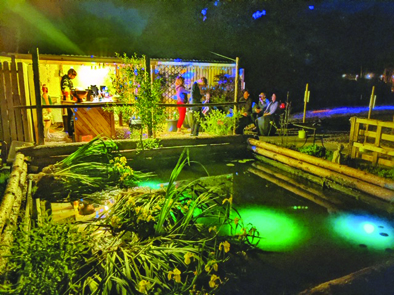
Time on their hands has led to some brilliant creativity, too: a new outdoor bar has been built using logs from the woods, with old wine bottles and copper piping as lighting. The plan is to sell local beverages wherever possible and, it being an outdoor bar, visitors will be able to use it and still maintain social distancing.
Preparing to receive guests
South Lytchett Manor, in Dorset, is introducing a long list of changes in preparation for receiving guests. Arrivals will be dealt with outside rather than in reception, and more information will be sent electronically before visitors arrive, including a document on how to enjoy your stay safely.
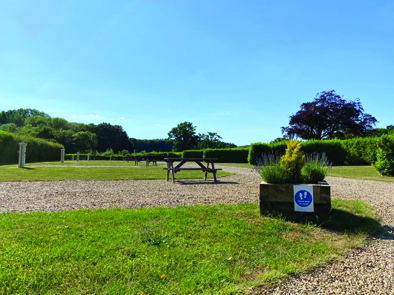
Floor markings denoting 2m distances will be in place in all indoor areas and outside amenity blocks, the shop and Elsan waster/water points.
Guests will be asked to telephone reception in the first instance, rather than visiting, and staff will have personal protective equipment.
Plexiglass is to be installed in reception and guests will be asked to use cashless payment methods where possible. The campsite has identified a list of touchpoints and high-risk areas and will be cleaning these more often, and putting up signs to encourage guests to wash their hands after touching any communal facility.
Information will be via a noticeboard, rather than leaflets for guests to peruse, and more of it will be made available digitally.
Poston Mill, in Herefordshire, is looking forward to seeing people arriving at the barrier once more and hearing voices around the park. The team has been testing and checking utilities, and cutting the grass and watering, and further preparations will be made during June.
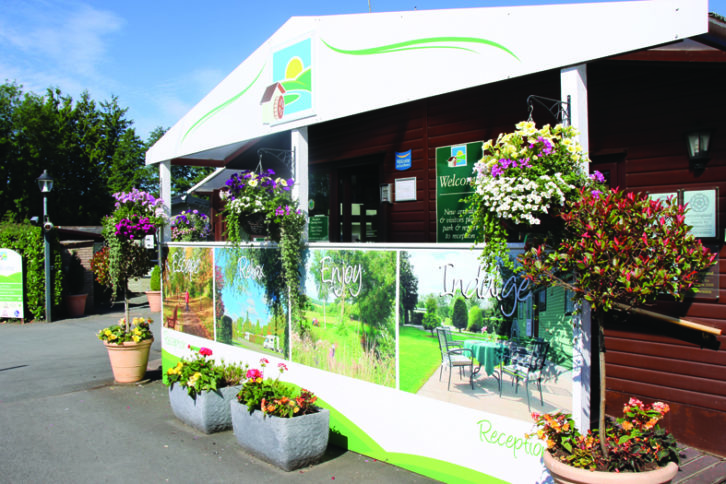
The campsite is experiencing a high volume of bookings from touring customers, but for the first week, the number of pitches will be limited while safety measures and facility rotas are tested.
Facilities should be open fully in August if not before, while the shop will open for orders only, not browsing. The Mill restaurant will open to provide takeaway meals and drinks, which can be consumed in the beer garden or on the lawn.
Concierge Camping in West Sussex, our overall winner in this year’s Top 100 Sites Guide, is also keen to welcome back visitors. The site is on the edge of the South Downs National Park, close to Chichester and the Witterings. Its fully serviced, hardstanding pitches are nine metres apart and surrounded by 8ft-high hedges.
The team is awaiting Government guidelines on how their five-star washblock should be adapted, but with most motorhomes and caravans having their own facilities, they are not unduly worried.
The site has readdressed the risk assessment and there will be new terms and conditions in place. For example, says owner Guy Hodgkin, if they are allowed to open the washblock and visitors do not use the hand sanitiser placed at the entrance on their way in and out of the facilities, they will be asked to leave.
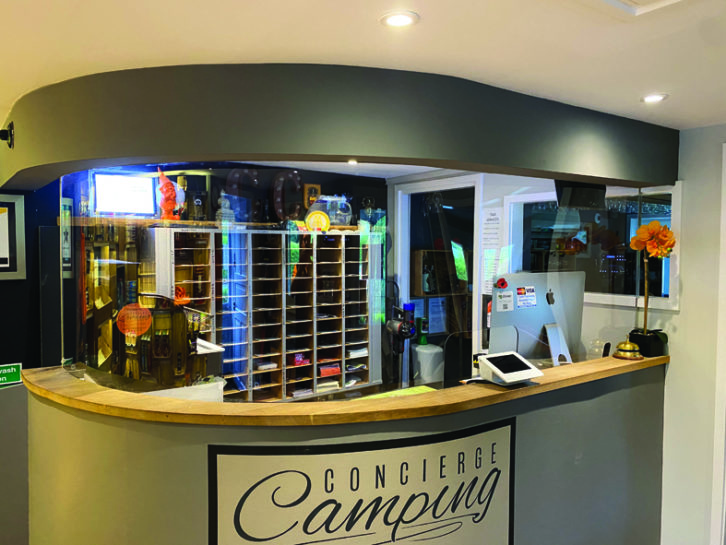
Guy and Tracey Hodgkin also have several mobile en-suite units – providing shower, toilet and basin – on order, to be positioned on-pitch for those who don’t want to use their ‘van’s or the campsite’s facilities. In addition, the site is installing Plexiglass in the reception area. You can see more of what the team at Concierge Camping have been up to during the lockdown here.
The industry looks ahead
The Camping and Caravanning Club reckons on losses of £25m with campsites remaining closed until the beginning of July. If local councils allow, some sites might decide to extend their season to make up part of the shortfall.
There is also a proposal from VisitBritain, now under consideration by the Government, for an additional bank holiday in October, to support the hospitality and retail industries.
According to analysis by The Independent, with wellbeing so high on the agenda, the country and individuals would benefit from such a move.
Everyone is trying to adjust to the new normal, and being able to include holiday options will make it all so much more bearable. So roll on, July, even with stricter regulations – the opening of campsites will be welcomed by many.
The Great Ferry Challenge
Ferry companies have continued to operate throughout the Covid-19 crisis, providing a valuable service for freight and essential travel. When it comes to passenger services, many have been suspended and some have gone altogether.
All of the ferry companies refer potential passengers to the Government travel advice.
They all also assure that the strictest hygiene protocols are being observed and that, because capacity has been reduced, it is easy to observe social distancing.
Only two people at a time are allowed in lifts, for example, and disembarkation is strictly staggered.
At the time of writing, all passengers travelling between the UK and the EU must wear a face mask, on board and through the EU ports. Passengers travelling to France must produce a travel declaration confirming that their journey is essential.
You can find out more information for travelling in France and Coronavirus here.
Spain is closed to international travel until the end of June, and it could be longer still before it welcomes visitors from the UK.
Ireland’s lockdown exit strategy began on 18 May, with the opening of outdoor spaces. Phase five (August 10) will bring the opening of pubs, nightclubs, casinos, shopping centres and other enclosed areas.
Overseas travel, however, is not included in the strategy at present and both the Irish government and the UK Foreign Office are currently advising people against all but essential overseas trips.
Reinstating passenger services is going to be complicated, not least because ferry companies have to comply with the travel restrictions of more than one country.
Brittany Ferries, for example, operates 12 ships through 12 ports in four countries. In a statement on its website posted on 1 June, CEO Christophe Mathieu explained some of the problems when it comes to the supply chain. “Restarting these operations following a three-month stoppage is far from simple, with a wide range of factors to consider. We need to make operational arrangements both on board and in port, we have to supply our ships and we need to ensure that we have all the necessary crew and shoreside colleagues to operate safely and securely.”
At the time of writing, these are the services that are currently operating or soon to resume.
DFDS
Service between Newcastle and Amsterdam is suspended up to and including 8th July.
The Dover-Calais, Dover-Dunkirk and Newhaven-Dieppe routes are sailing to normal schedules for freight and those undertaking essential travel, but with all bars, restaurants, shops and lounges closed until further notice. A complimentary meal is included for those travelling.
P&O Ferries
Passenger services are suspended between Hull and Zeebrugge. Other routes are running to a ‘fully optimised schedule’, with no foot passengers on the Dover-Calais route.
Brittany Ferries
There’s a limited return to scheduled passenger services this summer; the first sailing on the Portsmouth-Caen route resumed on 29th June, as did Plymouth-Roscoff. The first Portsmouth-St Malo sailing will take place on 17th July.
Routes to Spain include Portsmouth-Bilbao and Portsmouth-Santander, both of which have already begun sailing again.
Routes to France and Spain from Cork and Rosslare will resume in the first week of July.
Stena Line
In April, Stena Line announced plans to furlough 600 of its employees, with 150 redundancies across the UK and the Republic of Ireland.
The company, which owns the ports of Holyhead, Cairnryan and Fishguard, estimates that passenger figures will not recover until well into 2021.
Its Irish Sea sailings are operating to schedule, but capacity levels per ship for its travel business have been scaled back. Likewise, sailings between Harwich and the Hook of Holland are operating to schedule.
CalMac
Bookings are now being taken on a reduced timetable with a two-week rolling window. For example, bookings for travel during 1-14 July are now open; a timetable for the period 15 July to 18 October will be released on 2 July; bookings with a rolling two-week window for this period will open then.
Eurotunnel
Eurotunnel has seen a surge in demand and are now taking bookings for non-essential travel, including holidays. Shuttles are travelling regularly and expect to operate four trains per hour at peak periods.
Terminal buildings and facilities on the service are closed; passengers must remain inside their vehicle for the journey. Passengers can use facilities in the allocation lanes.
If you’ve enjoyed reading this article, why not get the latest news, reviews and features delivered direct to your door or inbox every month. Take advantage of our brilliant Practical Motorhome magazine SUBSCRIBERS’ OFFER and SIGN UP TO OUR NEWSLETTER for regular weekly updates on all things motorhome related.
Businesses everywhere are having to adapt to social distancing, to minimise the risk of spreading the virus
